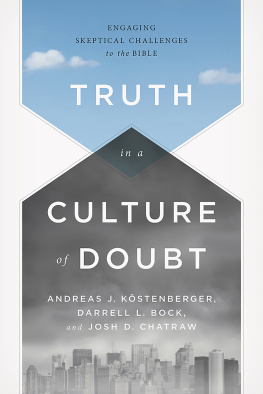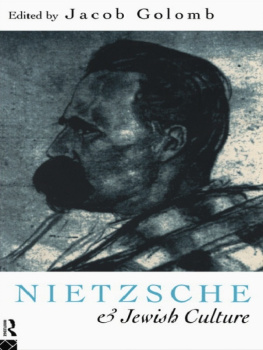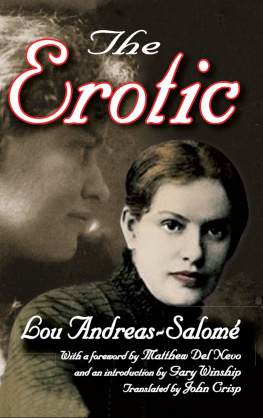Kilcher Andreas - Writing Jewish Culture
Here you can read online Kilcher Andreas - Writing Jewish Culture full text of the book (entire story) in english for free. Download pdf and epub, get meaning, cover and reviews about this ebook. year: 2016, publisher: Indiana University Press, genre: Home and family. Description of the work, (preface) as well as reviews are available. Best literature library LitArk.com created for fans of good reading and offers a wide selection of genres:
Romance novel
Science fiction
Adventure
Detective
Science
History
Home and family
Prose
Art
Politics
Computer
Non-fiction
Religion
Business
Children
Humor
Choose a favorite category and find really read worthwhile books. Enjoy immersion in the world of imagination, feel the emotions of the characters or learn something new for yourself, make an fascinating discovery.

- Book:Writing Jewish Culture
- Author:
- Publisher:Indiana University Press
- Genre:
- Year:2016
- Rating:3 / 5
- Favourites:Add to favourites
- Your mark:
- 60
- 1
- 2
- 3
- 4
- 5
Writing Jewish Culture: summary, description and annotation
We offer to read an annotation, description, summary or preface (depends on what the author of the book "Writing Jewish Culture" wrote himself). If you haven't found the necessary information about the book — write in the comments, we will try to find it.
Writing Jewish Culture — read online for free the complete book (whole text) full work
Below is the text of the book, divided by pages. System saving the place of the last page read, allows you to conveniently read the book "Writing Jewish Culture" online for free, without having to search again every time where you left off. Put a bookmark, and you can go to the page where you finished reading at any time.
Font size:
Interval:
Bookmark:
WRITING JEWISH CULTURE
PARADOXES IN ETHNOGRAPHY

EDITED BY
ANDREAS KILCHER AND
GABRIELLA SAFRAN

This book is a publication of
Indiana University Press
Office of Scholarly Publishing
Herman B Wells Library 350
1320 East 10th Street
Bloomington, Indiana 47405 USA
iupress.indiana.edu
2016 by Indiana University Press
All rights reserved
No part of this book may be reproduced or utilized in any form or by any means, electronic or mechanical, including photocopying and recording, or by any information storage and retrieval system, without permission in writing from the publisher. The Association of American University Presses Resolution on Permissions constitutes the only exception to this prohibition.
The paper used in this publication meets the minimum requirements of the American National Standard for Information SciencesPermanence of Paper for Printed Library Materials, ANSI Z39.481992.
Manufactured in the United States of America
Library of Congress Cataloging-in-Publication Data
Writing Jewish culture : paradoxes in ethnography / edited by Andreas Kilcher and Gabriella Safran.
pages cm
Selected papers presented at a conference titled Jewish ethnography between science and literature held in Zurich (Switzerland) in September 2013.
Includes bibliographical references and index.
ISBN 978-0-253-01962-2 (pbk. : alk. paper) ISBN 978-0-253-01958-5 (cloth : alk. paper) ISBN 978-0-253-01964-6 (ebook) 1. JewsEurope, EasternSocial life and customsCongresses. 2. JewsSocial life and customsCongresses. 3. Jewish folkloristsEurope, EasternCongresses. 4. Folk literature, YiddishCongresses. 5. Jewish folk literatureCongresses. 6. EthnologyEurope, EasternCongresses. 7. Europe, EasternEthnic relationsCongresses. I. Kilcher, Andreas B., 1963editor. II. Weissberg, Liliane. The voice of a native informer: Salomon Maimon describes life in Polish Lithuania. Container of (work):
DS135.E83W75 2016
305.892'4047dc23
2015033420
1 2 3 4 5 21 20 19 18 17 16
To our families
/ Andreas Kilcher and Gabriella Safran
WE ARE GRATEFUL to the contributors to this volume, who have joined us in an intellectual journey that originated with the international conference Jewish Ethnography between Science and Literature at the ETH Zurich in Fall 2013, and that has carried almost all of us beyond the borders of our scholarly comfort zones. We want to acknowledge three participants in our Zurich conference, Sasha Senderovich, Alexander Lvov, and Bernhard Tschofen, whose work is for various reasons not included here but who offered very valuable contributions to our conversation. We thank James Clifford for consulting with us and carefully reading our introduction. Raina Polivka, Janice Frisch, Darja Malcolm-Clarke, and Jenna Whittaker shepherded the manuscript through at Indiana University Press, and Joyce Rappaport copyedited it with informed precision. At Stanford, we thank the Humanities Center, which gave Andreas the possibility of spending two months in the Bay Area and working on the volume. D. Brian Kim elegantly and carefully edited and translated from Russian; Brian Tich effectively edited multiple parts of the manuscript and organized the paperwork around it. In Zurich, we thank Victoria Laszlo, who was of great help in the organization of the conference, and Jonas Sthelin, who was responsible for the index of the volume. Thanks go also to the Swiss National Science Foundation for the support of our Zurich conference, and to the Stanford Taube Center for Jewish Studies, the Department of Slavic Languages and Literatures, and the Georges und Jenny Bloch Foundation, Zurich, who provided support for the volume. Finally, we thank the authors and artists we analyze, whose writings about Ashkenazic Jews continue to challenge and provoke us today.
As a rule we have used a modified Library of Congress transliteration style for Russian and Hebrew and YIVO style for Yiddish, but for personal names we have attempted to use the spelling that is most familiar in English (often following The YIVO Encyclopedia). With Eastern European place names, we have strived for consistency and often settled on the Russian spellings that were familiar to our subjects.
WRITING JEWISH CULTURE

ANDREAS KILCHER AND GABRIELLA SAFRAN
Ethnography by its nature is a highly complex kind of writing. Ethnographers try to describe a culture using a specific scientific language, but they know the words they use may limit their readers understanding of that culture and betray the limitations of their own knowledge. Ethnographic writing is inevitably objective and subjective at the same time; the description of the alien reveals the self, whereas the seemingly familiar self emerges as alien and unknown. To use rhetorical and literary-critical terminology, ethnographic writing lends itself to ambivalences, contradictions, and aporias, or moments that give rise to philosophically systemic doubt. These aporias are at once epistemicconcerning the possibility of gaining knowledgeand aestheticconcerning modes of imagination and narration, the effect of writing and art through various means of representation. Analyzing ethnographic texts consequently requires one to evaluate their success at empirical scholarly measurement and at aesthetic representation that evokes the ethnographers experience of seeing and listening by means of drawing and storytelling in multiple media.
This constellation of scholarly and literary questions is the starting point of this volume, which concerns ethnographic writings on the Jews produced between the late eighteenth and mid-twentieth centuries. When writers worked to describe Jews as a group, they produced powerful epistemic This problem might seem to contradict the expectation that ethnography permits writers to construct and claim distinct cultural identities. From the eighteenth century, European scholars who encountered unfamiliar peoples wrote ethnographies about them, describing their customs, buildings, language, economic activities, and beliefs. Writing since that period on Jewish ethnography suggests that Jews can be described in the same secular mode: that they constitute a single body, unified across space and time by customs, beliefs, language, and economic activity. However, when we take a closer look, Jewish ethnographic texts, considered as a body, reveal the fissures in these notions, which are apparent even when the focus is narrowed to the Ashkenazic Jewish communities of Eastern and Central Europe that from the sixteenth through the mid-twentieth centuries constituted the bulk of the worlds Jews and are the subject of the lions share of Jewish ethnographic writing. A case study based on some two centuries of writing about these Ashkenazic Jews reveals problems that concern ethnography more generally.
A closer examination of this Jewish ethnography makes these fissures visible and prompts five central questions that reveal five paradoxes, which emerge from the epistemic, aesthetic, and cultural aporias evident in the texts. From the ancient Greek terms for something contrary to expectations,
Next pageFont size:
Interval:
Bookmark:
Similar books «Writing Jewish Culture»
Look at similar books to Writing Jewish Culture. We have selected literature similar in name and meaning in the hope of providing readers with more options to find new, interesting, not yet read works.
Discussion, reviews of the book Writing Jewish Culture and just readers' own opinions. Leave your comments, write what you think about the work, its meaning or the main characters. Specify what exactly you liked and what you didn't like, and why you think so.












